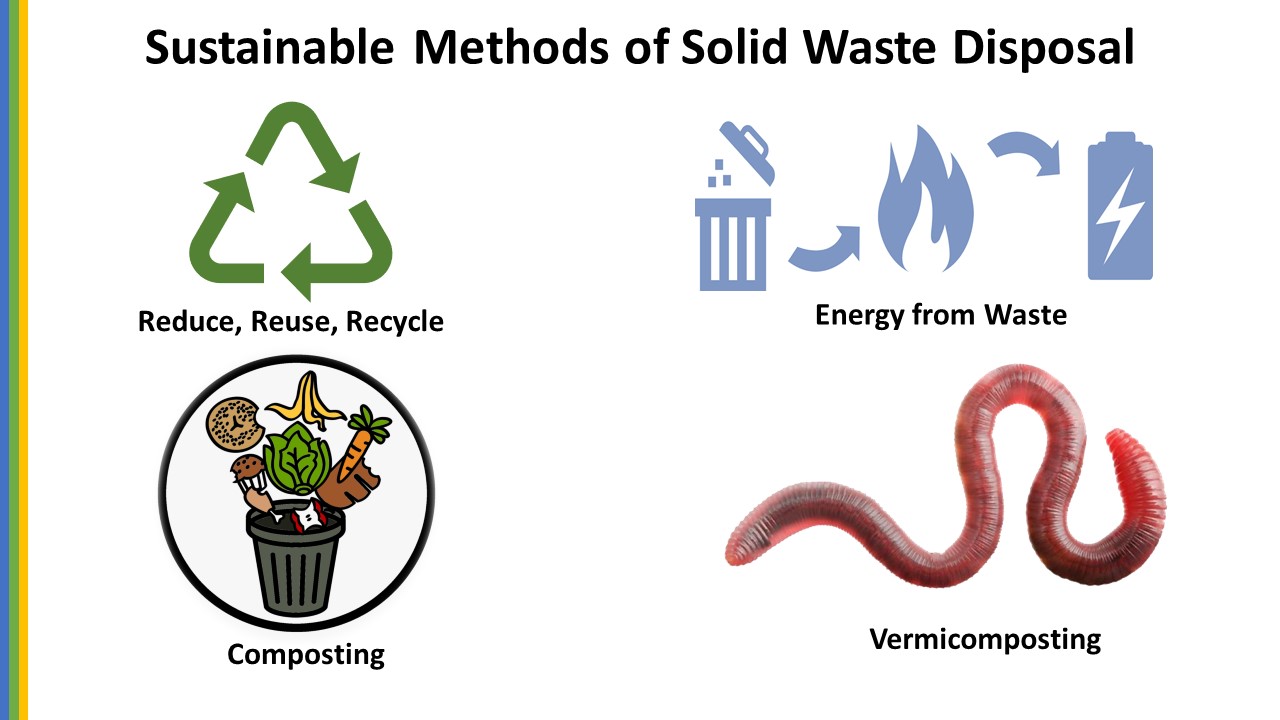Sustainable or Eco-friendly methods of solid waste management

Sustainable or Eco-friendly methods of solid waste management
Date: 09 January 2022
Author: Dr. Anjum Singhal
Solid waste management is defined as segregation of waste at source, collection, transportation and efficient disposal of waste products. If waste produced is segregated properly, its disposal by using specific techniques becomes easier and more efficient. Therefore, in solid waste management, segregation is as important as disposal of waste. Following are the few sustainable techniques for management or disposal of solid waste-
1. The 3-R: Reduce, Reuse and Recycle
Reduce- We should minimise/reduce the production of waste by reducing the burden on natural sources.
Reuse: We should use the materials more than once. Example: containers made of plastic, glass and metals.
Recycle: We should always segregate the recyclable waste in different containers. Recycling refers to the reprocessing of material into new shape to be use again. Example: things made of paper and plastic.
2. Composting
The technique is used to recycle organic waste like kitchen waste, leaf litter, food waste etc. Here, the organic waste or matter is buried in the soil and its’s allowed to decay by the action of microbes naturally, under aerobic environment. As a result, after decomposition nutrient rich manure is formed which increases the productivity and fertility of soil. This manure can also be used in agricultural field as suitable alternative to chemical fertilizers.
3. Vermicomposting
This process also recycles organic waste. It involves utilisation of earthworms for enhancement of degradation of organic waste. Earthworms feeds upon the organic waste, where waste is passed through digestive tract and finally excreted out in granular form (cocoons) known as vermicompost. This vermicompost is high in nutrition which increases the productivity of soil and can also be used as manure in agricultural fields.
4. Waste to energy
Energy in the form of biofuels can be produced from organic waste (cow dung, kitchen waste, human excreta etc.). The biofuel mainly consists of methane gas which is combustible in nature and can be utilised for various purposes such as cooking, electricity generation etc. Organic waste is mixed with water to form slurry which is allowed to decompose by micro-organisms under anaerobic conditions. The process results in generation of Bio-gas, and the leftover residue is used as manure to improve the fertility of soil.
hdyu5vvvkq|10001522Por_Blogs|Contentdb